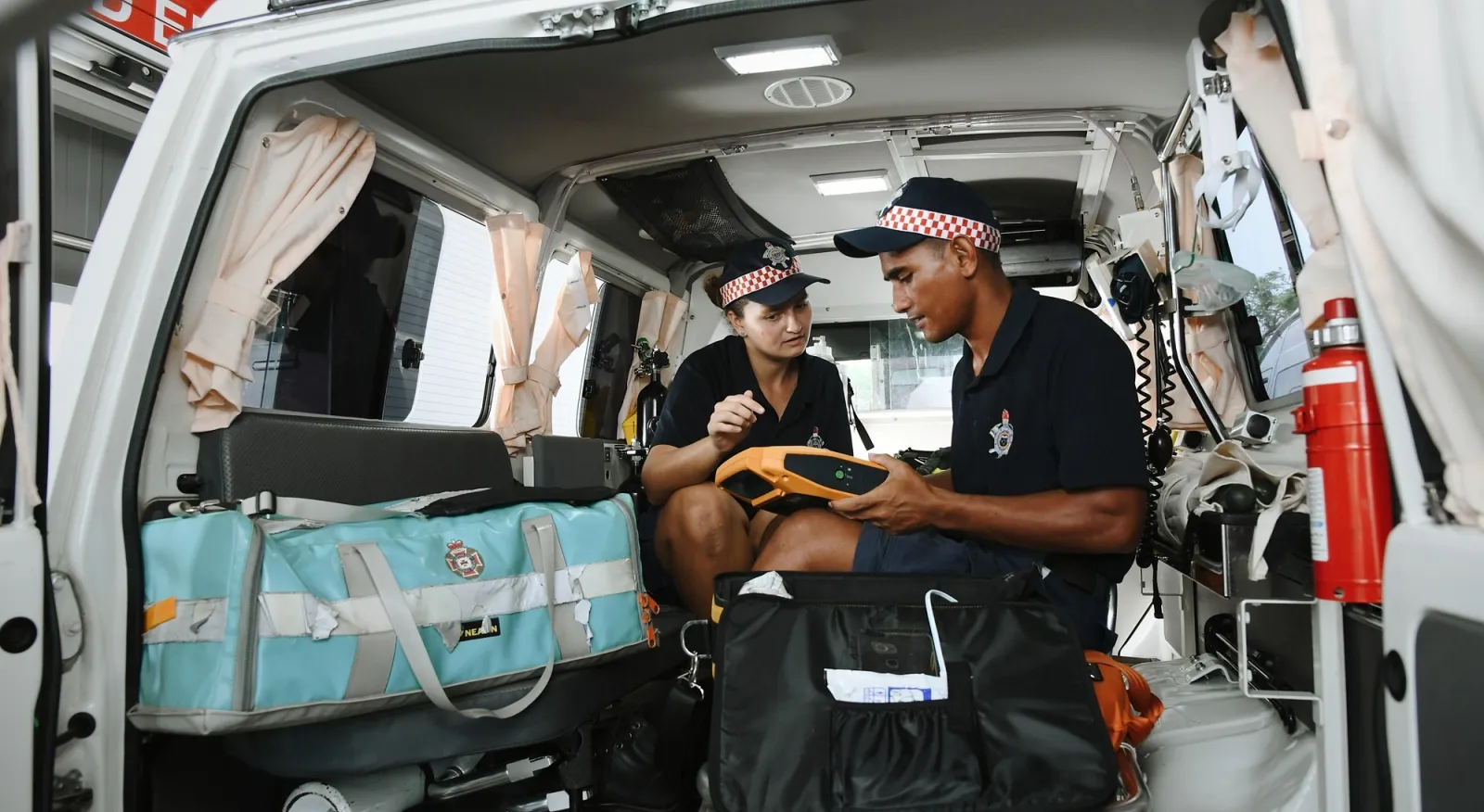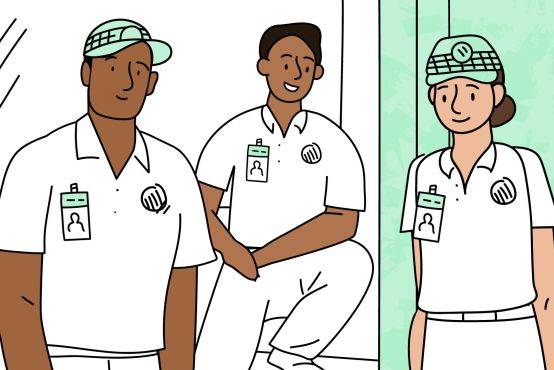Preparing first responders for climate change in Samoa
Australian volunteer Krystelle Syme is supporting the Samoa Fire Emergency Services Authority to face a future with a changing climate.

'Climate change is the biggest threat in the lives of the community in the Pacific region,' says Faafetai Alisi, Manager of Corporate Services at the Samoa Fire and Emergency Services Authority.
Undoubtedly, climate change is having an impact on the emergency management sector in the Pacific. As extreme weather patterns increase, there is an increase in the frequency and severity of cyclones, earthquakes, floods, coastal inundation and erosion, and the heat stresses that can result in fires.
As the first responders to natural disasters, emergency services play a vital role in helping their countries combat the impacts of climate change. Samoa Fire Emergency Services Authority (SFESA) is a contributor to the nation’s climate change taskforce and responsible for their country’s disaster risk reduction efforts.
To ensure SFESA is equipped to meet Samoa’s changing needs, the authority has diversified its focus from fighting fires to responding to all types of emergencies. As part of these efforts they identified the need to build capacity in paramedicine, and enlisted the support of Australian volunteer Krystelle Syme, as an Emergency Medical Services Mentor.
When Krystelle arrived, Samoa’s National Hospital had just given SFESA the role of the national ambulance service, and the timing of the arrival had a significant impact on staff capacity to respond effectively to the new demands of the ambulance service.
'That capacity strengthening and proper protocol and processes she implemented… was instrumental and such a crucial part of the service, without which our service wouldn’t be up to the stage we are at now,' says Tanuvasa Petone Mauga, Assistant Commissioner for Emergency Operations.
'She came in at crucial time as we had yet to have a paramedic officer. We had a registered nurse who looked after Ambulance Service but not at the same time,' says Tanuvasa.
Krystelle worked with her colleagues at SFESA to implement a suite of operational changes. She supported the team to change processes and procedures that improved efficiency, helped redevelop reporting templates and forms, resourced the ambulance service stock, and strengthened staff capacity.
Krystelle also assisted the HR Division in reviewing and realigning staff roles and job descriptions to better meet the needs of the organisation. Her expertise and experience were used to support HR to undertake job analysis, as there was limited understanding and capabilities within SFESA to undertake this important task.
Find out more about volunteering in Samoa in our short animation, featuring Krystelle.

On her assignment Krystelle invested time in providing technical training and mentoring staff. As a result, SFESA has seen an improvement in the standard of services offered, with major changes in the way the ambulance crew perform their roles and provide first aid and pre-hospital care to patients and trauma victims.
'Krystelle has been highly involved in all facets of ambulance services in FSESA. She has done incredibly well promoting the ambulance services and most of all in lifting the standard of the services to the public,' says Tanuvasa.
'She has adapted and adjusted to the team with few hiccups and her patience and perseverance culminated in positive feedback from the community.'
In a time of changing climate, it is important that emergency services are dynamic and flexible, and able to change and adapt their response to suit the different types of emergencies they face.
Through her assignment, Krystelle has had a significant impact on the operations of the SFESA, better positioning the authority to face whatever the future may bring.
Acknowledging the rapidly changing and increasingly complex global humanitarian environment, the Australian Volunteers Program has committed to increasing volunteer placements in climate change, disaster resilience and food security.
To support the development of new partnerships and to document outcomes in this area, the Australian Volunteers Program commissioned CoLab, a Fiji-based development consultancy, to develop a Pacific Climate Research report. This case study was developed as part of this report.